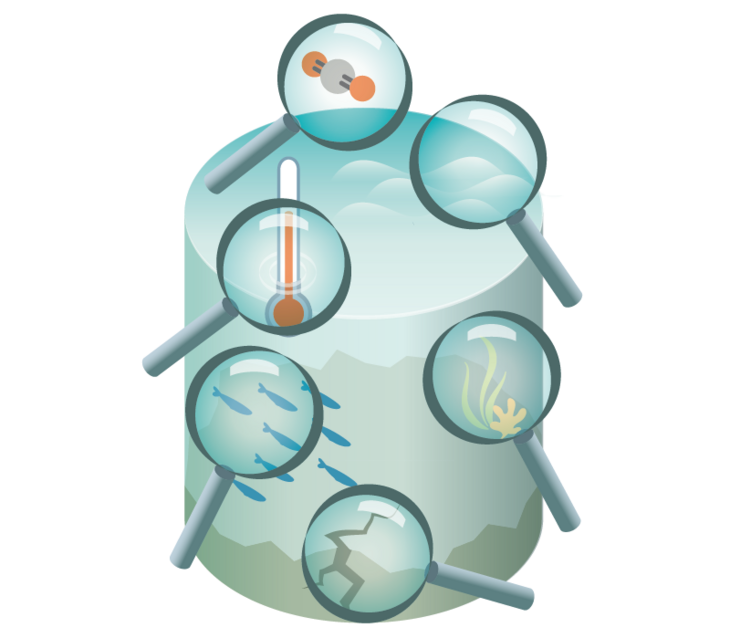People love the sea. Several legends, myths and stories surround the blue of our planet but what exactly do we actually know about the seas and oceans? The answer is very little. Yet, the world's oceans are vital for us. They provide food and oxygen and they also influence our climate and also play a key role in shaping it. Therefore, scientists are constantly researching to gain a better understanding of the physics, biology and chemistry of the oceans and thus, the Earth system.
At the same time, marine research is not only characterised by characteristics of natural sciences. The human factor plays a crucial role in issues related to handling the seas and oceans. Accordingly, lawyers, economists and people from social science disciplines such as political science and sociology also study the life with the seas.
Many researchers are involved in basic research, which is primarily concerned with expanding the basic knowledge on the processes and living environment in and around the oceans. Others focal points are of applied research and of transfering the knowledge gained in basic research to social issues. Their common goal is to gain comprehensive knowledge of how the oceans - as the basis of our lives - can be protected and at the same time used sustainably.
Marine research in Germany
Marine and climate research has a high priority in Germany and several universities, institutes and research organisations are working on issues related to the coasts, seas and oceans. They all make an important contribution to global sciences in this field and work closely together on a national, European and international level.

In order to strengthen this leading position and to promote cooperation between various institutions, the German marine research founded the German Marine Research Alliance (DAM) in 2019, together with the federal government and the northern German states of Bremen, Hamburg, Mecklenburg-Western Pomerania, Lower Saxony and Schleswig-Holstein. Thus, Germany has established one of the world's largest marine research alliances.
If you want to conduct excellent research, you need excellent people. The education and training of young talent in marine research is correspondingly important and the institutes and facilities are always on the lookout for new talents.
The science of the oceans is exciting but time-consuming
There is a reason why the seas and oceans have comparatively been explored very little up to now: They are huge and inaccessible. Collecting data requires many pieces of research equipment, which cannot not be too large or too heavy because they have to be transported on ships. The ships, in turn, need special equipment to fulfil the diverse requirements of science. One of the best-known research vessels in Germany is the Polarstern of the Alfred Wegener Institute Helmholtz Centre for Polar and Marine Research.
As there are only a few research vessels, ship time is a scarce commodity. Expeditions lasting several days or weeks are particularly expensive and have to be meticulously planned. Therefore, most of the research work takes place in laboratories and on computers to analyse the data collected from the expeditions. Taking part in a research expedition on a ship is rare and a very special experience for many scientists.














